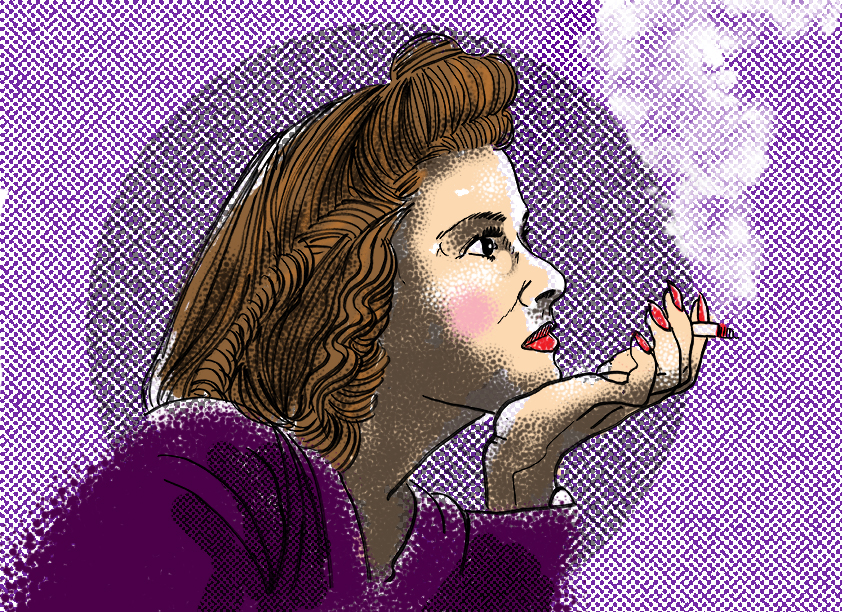
Katalin Karády was a pretty big star in her native Hungary, with a career that mirrored her Hollywood counterparts of the time. She gained the persona of “diva” and “sex symbol” after her 1939 debut in the film Halálos Tavasz (“Deadly Spring”). Katalin was also a popular vocalist. Her songs were heard frequently on Hungarian radio. She became a cultural icon, with thousands of female fans mimicking her fashion style, her hairstyle and her attitude. Katalin was a constant topic of gossip in the press, with regular speculation regarding her sexual orientation.
After the 1944 German invasion of Hungary, Katalin’s films and songs were banned. The film on which she was working, Gazdátlan asszony (“Orphan Woman“), had its production shut down. Katalin was arrested by the Gestapo as an alleged spy and put in prison for three years. During her prison term, Katalin was subjected to torture and beatings that nearly ended her life. She was rescued by associates of a high-ranking military officer with whom Katalin once had a romantic relationship. Once out of prison, she assisted in the rescue and hiding of Hungarian Jews, including saving a group of 20 Jewish children from being murdered on the banks of the Danube during the Arrow Cross reign of terror.
Katalin attempted to restart her acting career, but the Communist-run film industry was not interested. To avoid further mistreatment and beatings, she fled Hungary, making her way to Austria, Switzerland, Belgium and eventually the United States, with the assistance of Ted and Robert Kennedy. She moved to New York City, opened a hat store and stayed out of the public eye. She refused to talk about film career and her heroic post-film career. The government of Hungary sent her an invitation to return to her home country for her 70th birthday. She replied by sending a single hat, baffling government officials.
Katalin passed away in February 1990 at the age of 79. In 2004, she was posthumously honored with the Righteous Among the Nations recognition, given to non-Jews by the State of Israel who risked their lives during the Holocaust to save Jews from extermination by the Nazis.
